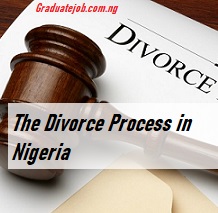The Matrimonial Causes Act in Nigeria has evolved over years. Before and during the colonial era, marriages were treated as an ordinary transactions.
Modern times have brought about new changes and rules in society. The matrimonial causes act are rules made on a federal level and is enacted in every state in Nigeria. The Nigerian Matrimonial Causes are rules and acts governing matrimonial proceedings. it covers areas like the legality of marriage, divorce, custody, nullity of marriage, restitution of conjugal rights, and others. The matrimonial causes act is made to preserve the sacred institution of marriage.
In this article, you will see how the matrimonial act relates to major issues like jurisdiction, divorce, maintenance and custody. Read on for a better understanding.
Matrimonial cause act
Some of the issues addressed under the Nigerian matrimonial causes marriage are;
Jurisdiction
In the matrimonial cause act, the court only has jurisdictions on marital proceedings in that both parties are domiciled in Nigeria. A marriage does not simply end with an agreement of both parties, it must be petitioned in the high court of any state. For this to be done, a person must be domiciled in any state in Nigeria.
Section 7 of the matrimonial causes act states that;
- A deserted wife who was domiciled in Nigeria either immediately before her marriage or immediately before the desertion shall be deemed to be domiciled in Nigeria.
- A wife who is resident in Nigeria at the date of instituting proceedings under this act and has been so resident for three years immediately preceding that date shall be deemed to be domiciled in Nigeria at that date.
section 9(2) states that “A court is allowed to transfer marital proceedings to another high court in any state for the convenience of both parties and in the interest of justice.” The law also recognizes marriage contracted outside Nigeria under this condition
“A marriage between parties one of whom is a citizen of Nigeria, if it is contracted in a country outside Nigeria before a Marriage Officer in his office, shall be valid in law as if it had been contracted in Nigeria before a Registrar in the Registrar’s office“.
Matrimonial Relief
- Nullity of marriage
Under the law, a marriage can be annulled if it is void or voidable. A void marriage has never been in existence hence in the eyes of the law. Avoidable marriage is valid and exists in the eyes of the law and needs the court to decree its annulment. until the decree has been made, such marriage remains in existence
The matrimonial cause act lays down grounds on which a marriage may be considered void. They are;
A marriage is a void where one or both parties at the time of the marriage are lawfully married to another person.
- When the marriage by both parties is within prohibited degrees of affinity and consanguinity.
Affinity means getting married to someone you are related to through marriage while consanguinity means getting married to someone you are related to by blood.
- A marriage is considered void if both parties fail to comply with the laws of the place where the marriage is celebrated
- When there is no free consent of either of the parties to the union. This could be as a result of fraud or duress, insanity, or mistake.
- When either of the parties is not of marriageable age. According to the law, a person not up to 18 years is not of marriageable age
The ground on which a marriage is voidable;
- Inability to consummate the marriage. E.g. impotency.
- Insanity is the time of the marriage celebration.
- When either of the party suffers from a communicable disease at the time of marriage.
- If the wife is pregnant for someone else other than the husband at the time of marriage (only if the husband is not aware of the pregnancy)
- Dissolution of marriage
The matrimonial causes act states that marriage can only be dissolved because it has broken down irretrievably.
Also, Read Up >>> What are the Causes of Divorce in Nigeria?
The following are ways marriage is considered irretrievable
- Refusal to consummate the marriage
- Adultery that the petitioner finds intolerable to live with
- Intolerable behaviour
- Desertion
- Living apart for two years to which the respondent does not object to a decree being granted
- Living apart for a continuous period of three years
- Where the other party under a period of one year has refused to comply with a decree of constitutional rights
- That the other party has been absent for a long period and is presumed dead
Maintenance, custody, and settlements
The matrimonial causes act provisions allow the court to order a spouse to the other in favour of the marriage or children of the marriage. In granting maintenance, the court takes into consideration of factors like the earning capacity of both parties, conduct, the standard of living, and moral duty of care.
Section 5 of 1970 states “that the maintenance does not seeks to share a spouse’s fortunes but seeks to place the parties in the financial position they would have been if the marriage had not broken down.”
Unless the court thinks it is necessary, children above 21 years cannot be maintained.
Custody
The court takes into consideration of certain things like;
- Which court has the best arrangement for the child
- Age and sex of the child
- Education factor
- Child’s wish
- Medical and psychological factors
- Equality of the parents
After much consideration, the court may decide on any of the following;
Sole custody: This is where only one parent gets the physical custody of the child
Divided custody: This is an arrangement where the custody of the child is switched between both parents
Split custody: This is an arrangement where one parent gets legal custody while the other gets physical custody
Joint custody: Both parents share custody of the child if they are willing to cooperate
Third-party custody: A third party gets the custody of the child in a case where both parents are unfit.
Other areas Provided by the matrimonial cause act are’;
- Restitution of conjugal rights
- Judicial separation
- Appeals
Hope you are clear on what Matrimonial Causes Act in Nigeria entails. You can also do well to Understand Family Laws that should not be neglected in Marriage.






